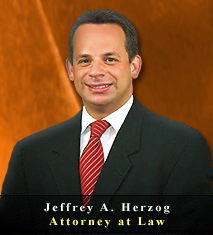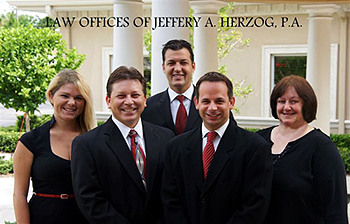What is business law?
What factors should be considered in choosing the type
of business form for my business?
What is the difference between a
subchapter C and S corporation?
What does it mean to pierce the
corporate veil?"
What is the difference between a
joint venture and a partnership?
What is a non-profit corporation?
How often should a corporation
hold meetings and update its minutes?
Is it a good idea to have a
Buy-Sell Agreement?
What does involved in a corporate
merger?
Q: What
is business law?
Business law encompasses the
many rules, statutes, codes, and regulations that are
established which govern commercial relationships and
provide a legal framework within which businesses may be
conducted and managed. Business law is highly diverse
and includes areas such as:
business formation and
organization
transactional business law (contracts)
business planning
business negotiations
mergers and acquisition
divestitures
Back to the
top.
Q: What factors
should be considered in choosing the type of business
form for my business?
Although there are many
important things to think about when choosing a business
form, some of the main considerations include your
preference of tax treatment, how you intend to
capitalize the business, whether you plan to issue stock
and trade it publicly, how you intend to structure the
management of your business and issues surrounding the
liability of the business owners, among other things. It
is very important to plan your business and to work
closely with someone who can help you choose the
business form that will meet your needs.
How can a properly
established business entity such as a corporation shield
me from personal liability for business debts and
obligations?
Personal liability arising from business obligations can
devastate the accumulated wealth of a lifetime of work.
Personal liability may extend to business losses, but
other obligations may also reach individuals, including:
Damage awards in lawsuits
Tax penalties
Back wages and benefit payments
Limited liability offered by
corporations and other business entities shelters
business owners from personal liability. Nonetheless, if
an owner or director performs certain personal acts,
behaves illegally, or fails to uphold statutory
requirements for corporate status, he or she may face
personal liability despite the corporate shelter.
Back to the
top.
Q: What is the
difference between a subchapter C and S corporation?
The Internal Revenue Code
allows for two different levels of corporate tax
treatment. Subchapters C and S of the code define the
rules for applying corporate taxes.
Subchapter C corporations
include most large, publicly-held businesses. These
corporations face double taxation on their profits if
they pay dividends: C corporations file their own tax
returns and pay taxes on profits before paying dividends
to shareholders, which are subsequently taxed on the
shareholders' individual returns.
Subchapter S corporations
meet certain requirements that allow the business to
insulate shareholders from corporate debts but avoid the
double taxation imposed by subchapter C. In order to
qualify for subchapter S treatment, corporations must
meet the following criteria:
Must be domestic
Must not be affiliated with a larger corporate group
Must have no more than one hundred shareholders
Must have only one class of stock
Must not have any corporate or partnership
shareholders
Must not have any nonresident alien shareholders.
Additionally, after a
business is incorporated, all shareholders must agree to
subchapter S treatment prior to electing that option
with the Internal Revenue Service.
Back to the
top.
Q: What does it mean
to pierce the corporate veil?
Sometimes, courts will allow
plaintiffs and creditors to receive compensation from
corporate officers, directors, or shareholders for
damages rather than limiting recovery to corporate
assets. This procedure bypasses the usual corporate
immunity for organizational wrongdoing, and may be
imposed in a variety of situations. The specific
criteria for piercing the corporate veil vary somewhat
from state to state and may include the following:
Courts may not allow
owners to benefit from a corporations limited liability
if the underlying business is indistinguishable from its
owners.
If a corporation is formed for fraudulent purposes.
Courts may impose liability on the individuals
controlling the business if a business fails to follow
certain corporate formalities in areas such as
record-keeping.
Back to the
top.
Q: What is the
difference between a joint venture and a partnership?
Joint ventures and
partnerships share certain characteristics. A joint
venture is a sort of partnership where two or more
entities join together for a particular "short term"
purpose. In both partnerships and joint ventures, each
partner has equal ability to legally bind the entire
entity. A partner can represent the entire organization
in the normal course of business and his or her legal
actions on behalf of the joint venture or partnership
create legal obligations.
Though the powers of
individual partners in a partnership or joint venture
can be limited by agreement, such agreements do not bind
third parties. Because business contacts outside of the
partnership may have no knowledge of the limitations,
they may be entitled to rely on the apparent authority
of an individual partner as determined by the usual
course of dealing or customs in the trade.
Back to the
top.
Q: What is a
non-profit corporation?
A non-profit corporation is
a corporation formed to carry out a charitable,
educational, religious, literary, or scientific purpose.
A nonprofit corporation doesn't pay federal or state
income taxes on profits it makes from activities in
which it engages to carry out its objectives. This is
because the IRS and state tax agencies believe that the
benefits the public derives from these organizations'
activities entitle them to a special tax-exempt status.
The most common federal tax
exemption for nonprofits comes from Section 501(c)(3) of
the Internal Revenue Code, which is why nonprofits are
sometimes called 501(c)(3) corporations.
Back to the
top.
Q: How often should a
corporation hold meetings and update its minutes?
Any time a corporation
undertakes a major change or transaction, it should be
reflected in its minutes. In addition, meetings of
shareholders and directors should take place at least
annually if for no other reason than to elect new
officers and directors. Failure to adhere to the
formality of regular meetings can jeopardize the
corporation's ability to shield its officers, directors
and shareholders from personal liability for the
corporation's actions.
Back to the
top.
Q: Is it a good idea
to have a Buy-Sell Agreement?
Corporations with more than
one shareholder should seriously consider a buy-sell
agreement. A shareholder's death, divorce, disability or
termination of employment can create serious problems
for a corporation and its other shareholders. A buy-sell
agreement can help minimize these problems by providing
for an orderly succession in such plans. Similar
provisions are recommended for partnership.
Back to the
top.
Q: What does involved
in a corporate merger?
Like most corporate law,
mergers are regulated at the state level. While these
laws vary by jurisdiction, many aspects of the merger
process are the same across the nation. Generally, the
board of directors for each entity must initially
approve a resolution adopting a plan of merger that
specifies the names of the entities involved, the name
of the proposed merged company, the manner of converting
shares of both entities, and any other legal provisions
to which the corporations agree. Each entity notifies
all of its shareholders that a meeting will be held to
approve the merger. If the proper number of shareholders
approves the plan, the directors sign the papers and
file them with the state. The secretary of state issues
a certificate of merger to authorize the new
corporation.
Each state has its own
corporate statutes that govern the procedure for
mergers. Furthermore, state or federal agencies may wish
to investigate the potential anticompetitive effects of
a proposed merger. Because of the requirements and
variables involved in merging, a corporation considering
a merger should consult a lawyer who is experienced in
mergers and acquisitions law.
Back to the
top.


 We would also like to hear from you, so please contact us via telephone
We would also like to hear from you, so please contact us via telephone
 If you require professional legal advice and
representation in
If you require professional legal advice and
representation in